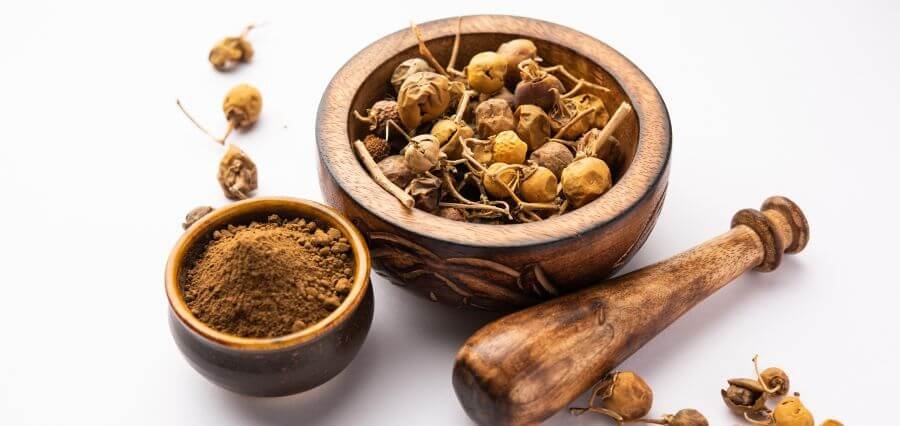Reviving Folk Knowledge
Gujarat, a region known for its rich cultural and historical legacy, has long been home to ancient medical traditions that have thrived for centuries. Traditional Gujarat Medicine is rooted in the principles of Ayurveda, herbal remedies and folk healing practices passed down through generations.
This indigenous knowledge was once the primary source of healthcare for the people of Gujarat, addressing ailments with natural treatments and holistic approaches. However, with the rise of modern healthcare practices, many of these traditional methods were gradually overshadowed by advancements in medical technology and pharmaceuticals.
In recent years, there has been a renewed interest in integrating traditional Gujarat medicine with modern healthcare practices to provide more comprehensive and culturally attuned healthcare solutions. As society becomes increasingly aware of the limitations of purely Western medicine, there is a growing recognition of the value of blending ancient wisdom with modern innovations.
This integration aims to combine the strengths of both systems, preserving Gujarat’s folk knowledge while ensuring that healthcare remains effective and accessible in a rapidly evolving world. By merging these two approaches, practitioners hope to enhance patient outcomes, promote holistic well-being and revive the ancient medical traditions that have served Gujarat for centuries.
The Foundation of Traditional Gujarat Medicine
Roots in Ayurveda and Folk Remedies
Traditional Gujarat Medicine is deeply influenced by Ayurveda, one of the oldest holistic healing systems in the world. Based on the balance between body, mind and spirit, Ayurveda focuses on natural treatments, diet and lifestyle changes to prevent and cure diseases. Gujarat’s specific regional practices include the use of local herbs, roots and plants known for their medicinal properties. These remedies were traditionally administered by village healers and vaidyas (Ayurvedic practitioners), who possessed intimate knowledge of the medicinal properties of local flora and fauna.
The state’s folk healing traditions also incorporated spiritual elements, such as rituals and prayers, to enhance the healing process. From herbal poultices to natural tonics, Traditional Gujarat Medicine has long provided treatments for ailments such as digestive issues, skin conditions and respiratory problems. These remedies were especially valuable in rural areas where access to formal healthcare was limited. The preservation of this knowledge was critical to the well-being of Gujarat’s communities, and even today, many people continue to rely on these age-old practices as a complement to modern medicine.
The Role of Unani Medicine
Another important aspect of traditional Gujarat medicine is the influence of Unani medicine, brought to India by Arab traders and later expanded during the Mughal era. Unani, like Ayurveda, focuses on the balance of elements in the body and employs natural remedies to restore health. Gujarat, being a historical trading hub, integrated many aspects of Unani practices into its traditional medicine. The blending of these systems has created a unique healing culture that offers a variety of treatment options rooted in both Ayurvedic and Unani wisdom.
Modern Healthcare Practices in Gujarat
With the advent of modern science and technology, Gujarat has seen significant advancements in healthcare, ranging from state-of-the-art hospitals to cutting-edge treatments in fields such as cardiology, oncology and orthopedics. Modern healthcare practices in Gujarat, like in the rest of India, have benefited from technological innovations, including diagnostic tools like MRIs & CT scans, advanced surgical techniques, and the widespread availability of pharmaceuticals. These developments have drastically improved life expectancy and patient outcomes in the state.
However, despite these advancements, there is growing recognition that modern healthcare practices alone are not always sufficient to address the complex health needs of patients. Chronic conditions, mental health issues and lifestyle diseases such as diabetes and hypertension require not only clinical interventions but also holistic care that considers the patient’s overall well-being. This realization has led to an increased interest in integrating traditional Gujarat medicine with modern medical practices, providing a more comprehensive approach to health and healing.
Bridging the Gap Between Tradition and Modernity
The integration of traditional Gujarat medicine into modern healthcare practices requires careful coordination between practitioners of both systems. In recent years, there have been efforts to establish collaborative frameworks where Ayurvedic and modern healthcare practitioners work together to treat patients. For example, many hospitals in Gujarat now offer Ayurvedic consultations alongside conventional treatments, allowing patients to benefit from both perspectives.
This integration is particularly evident in fields such as pain management, where Ayurvedic therapies like panchakarma (detoxification treatments) are used in conjunction with allopathic medicines to provide relief for chronic pain conditions. Similarly, herbal remedies are increasingly being incorporated into treatment plans for patients with lifestyle diseases, offering natural alternatives to pharmaceutical drugs.
Case Studies
Integrative Medicine in Rural Gujarat
In rural parts of Gujarat, where access to advanced healthcare facilities can be limited, the integration of traditional Gujarat medicine with modern healthcare practices has proven particularly effective. Village health workers often use a combination of local herbal remedies and modern medical treatments to provide primary care to underserved populations. This approach ensures that patients receive timely care while respecting the cultural significance of folk healing practices.
In some communities, local healers work alongside doctors and nurses, offering their expertise in natural remedies for ailments such as coughs, colds and digestive issues. This collaborative model has helped bridge the gap between tradition and modernity, ensuring that both systems are utilized to their fullest potential. It also highlights the importance of culturally sensitive healthcare that acknowledges the value of indigenous knowledge in promoting wellness.
Ayurveda in Urban Wellness Centers
In urban areas, wellness centers that offer holistic health services have emerged, combining traditional Gujarat medicine with modern therapies. These centers focus on preventive care, encouraging patients to adopt healthier lifestyles through a combination of Ayurvedic principles, yoga and dietary counseling. Many professionals in Gujarat’s healthcare sector believe that incorporating these traditional methods into daily life can help combat the rise of lifestyle diseases, which have become increasingly prevalent in modern society.
At these centers, patients receive personalized treatment plans that blend the wisdom of Ayurveda with modern diagnostic tools and techniques. For example, a patient struggling with stress-related disorders may be prescribed a regimen that includes Ayurvedic herbs, meditation practices and yoga therapy, alongside counseling sessions with a licensed psychologist. This integrative approach allows for a more comprehensive form of care that addresses both physical and mental health.
The Challenges of Integration
Despite the growing interest in integrating traditional Gujarat medicine with modern healthcare practices, several challenges remain. One of the most significant obstacles is the need for scientific validation of traditional remedies. While many herbal treatments have been used for centuries, there is often limited clinical evidence to support their efficacy. To address this, researchers and practitioners are working to conduct rigorous studies that evaluate the safety and effectiveness of traditional remedies in modern clinical settings.
Additionally, regulatory hurdles exist in the form of standardization and quality control. Ensuring that herbal medicines meet the same safety and quality standards as pharmaceuticals is essential for their widespread acceptance in the healthcare system. Efforts are being made to develop standardized protocols for the preparation and administration of Ayurvedic and herbal treatments, which will allow them to be more seamlessly integrated into mainstream healthcare.
Closing Remarks
The integration of traditional Gujarat medicine with modern healthcare practices is a promising development that seeks to combine the best of both worlds. By acknowledging the value of Gujarat’s rich folk knowledge and blending it with modern medical advancements, healthcare in the state is becoming more comprehensive and patient-centered.
The combination of traditional and modern medicine enhances healthcare outcomes by providing holistic care that respects cultural heritage. As scientific research continues to validate traditional remedies and standardize their use, the future of integrative medicine in Gujarat looks bright, with the potential to revolutionize healthcare across India and beyond.
Read Also: The Gujarat Nexus Tracing Ancient Maritime Trade Routes and Their Modern Day Relevan




